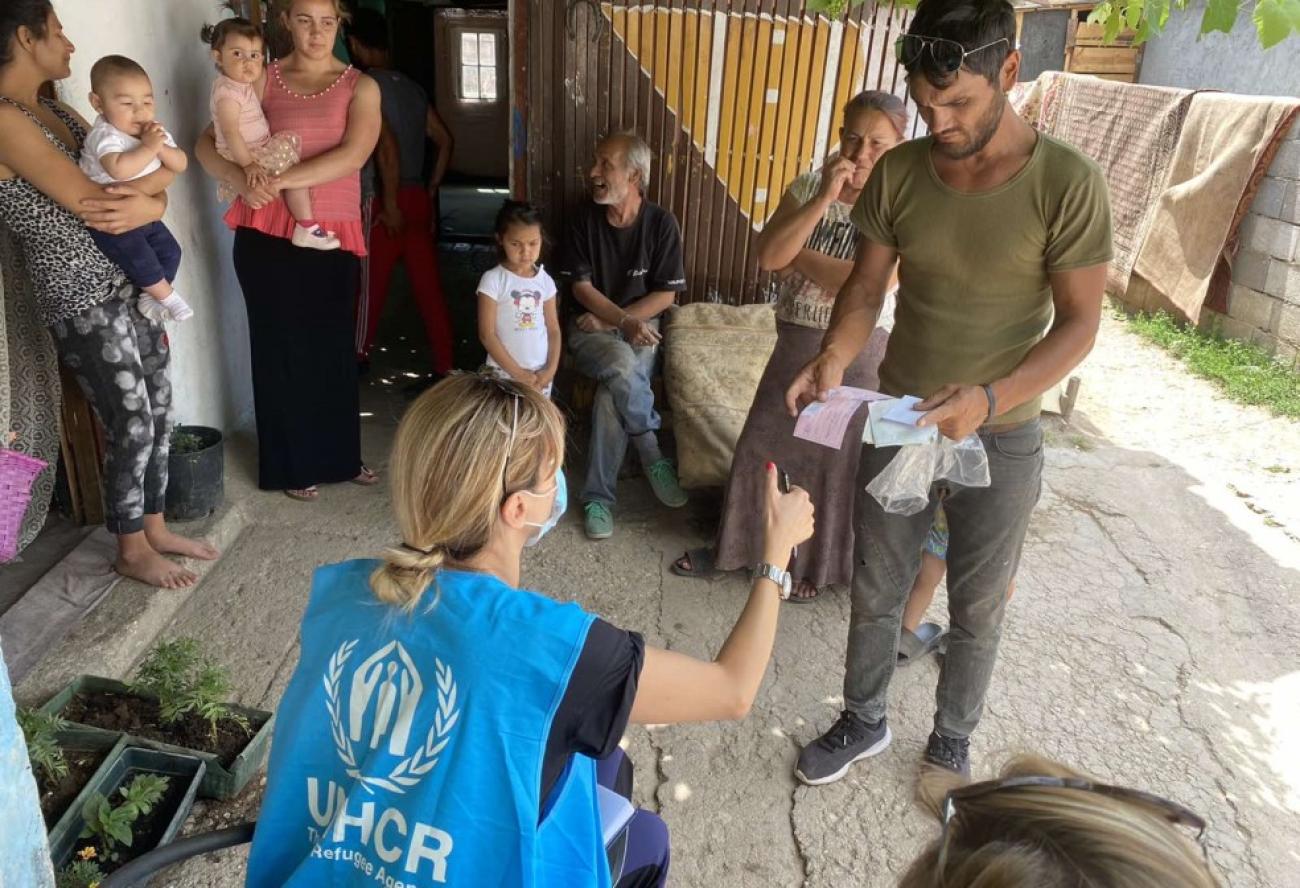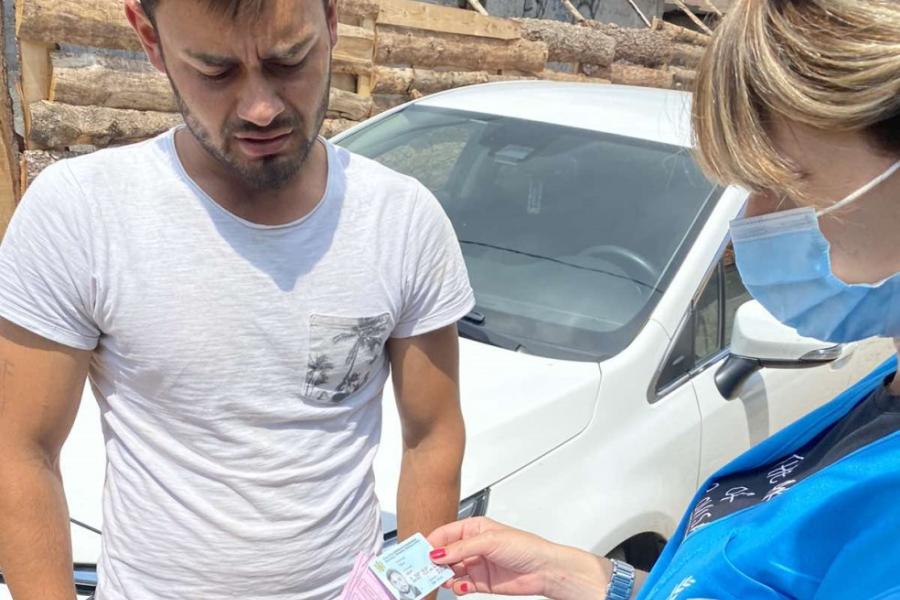Opening door of opportunities

With the long-awaited gain of legal status, Sadat has much more to hope for.
Nikšić, 7 July 2020
After almost 20 years of life without legal status in Montenegro, Sadat Tafaj (25) who fled from Kosovo[1] with his family as a five-year old, finally gained a permanent residence in April this year, with the help of UNHCR. New status opened new frontiers for Sadat, including the opportunity to access social and health care as well as labour market.
“This means a lot for me and my family. With this long-awaited permit, I have much more to hope for,” said Sadat, who found a job shortly after gaining new status.
Soon after my legal status has been resolved, I got employed at the Municipal sewage company. This will help me support my numerous family in these challenging times.
Sadat Tafaj
Sadat is one of 9 children of the Tafaj family, all of them facing same issue with legal status. Although his father holds a regular legal residence in Montenegro, his mother had no identity documents nor could be found in any of the registers in Kosovo. As a result, none of the children could qualify for registration in the Kosovo’s birth and citizenship registries.
After many years of searching for legal solutions for Tafaj family, backed by UNHCR support, the Ministry of Interior issued a temporary residence foreigner ID card to the mother, which enabled a basis for further registration of her children in Kosovo. This long and complex follow-up enabled 9 children of Tafaj family to apply and start receiving identity documents from Kosovo, with Sadat being the first one.
I am looking forward to my siblings receiving permanent residence status too, so we can all finally put an end to a two-decade cycle of being undocumented and thus deprived of many rights.
Sadat Tafaj

In Montenegro, there are still some 360 former displaced and internally displaced persons who still have not resolved their legal status and around 140 persons at risk of statelessness. The UNHCR team in Montenegro, in cooperation with national and international partners, continuously support members of this vulnerable group to gain their legal status.
UNHCR Representative Roberta Montevecchi highlights that the problem of unresolved legal status and the risk of statelessness is most widespread among the Roma and Egyptian populations, i.e. mostly among those who fled from Kosovo.
Unresolved legal status prevents these persons not only from accessing rights, but also significantly affects deepening of poverty among this population, increases the risk of discrimination and socio-economic vulnerability.
Roberta Montevecchi, UNHCR Representative
UNHCR’s work on ending statelessness in the country is one of the major pillars of the joint UN Montenegro programme on integrated social protection and employment - called Activate! Grounded in the principle to ‘Leave No one Behind’, the programme funded by the UN’s Joint SDG Fund aims to enhance the capacities of the social welfare system in Montenegro to better serve people in need and support decent work and employability.
[1] References to Kosovo shall be understood to be in the context of UN Security Council Resolution 1244(1999)
Author: Ana Rašović, UNHCR Montnegro
* * * * * * * * * * * * * * * * * * * * * * * * * * * * * * * * * * * * * * * * * * * * * * * * * * * * * * *
UNHCR, together with the Ministry of Interior of Montenegro, diplomatic and consular missions of neighboring countries and territories and its partners NGOs, provides targeted assistance to all former displaced persons to regulate their legal status, mainly through the provision of financial assistance, legal advice and administrative support. In Montenegro, there are still some 360 former displaced and internally displaced persons who still have not resolved their legal status and around 140 persons at risk of statelessness.
* * * * * * * * * * * * * * * * * * * * * * * * * * * * * * * * * * * * * * * * * * * * * * * * * * * * * * *





